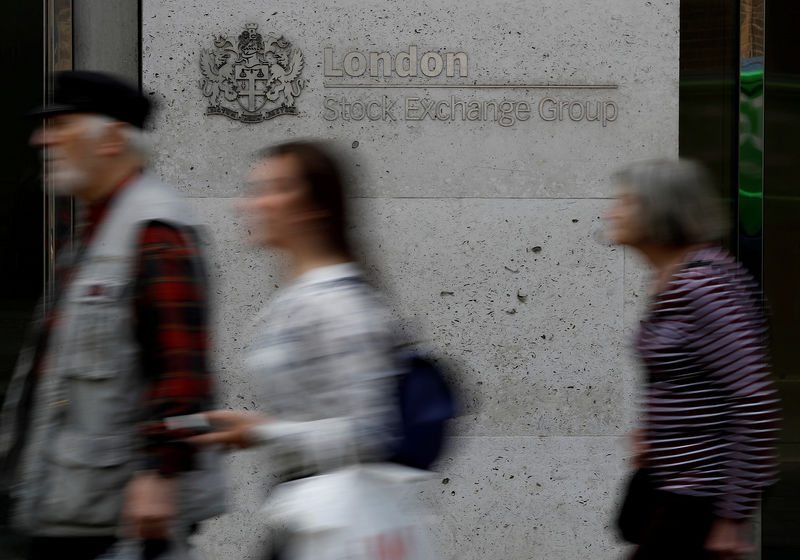By Tom Wilson
LONDON (Reuters) - World share markets dipped on Friday, with concerns about U.S. political developments after a whistleblower complaint against President Donald Trump denting optimism about an easing of U.S.-China trade tensions.
MSCI's world equity index, which tracks shares in 47 countries, fell 0.1% and was heading towards its worst weekly performance since mid-August.
Asia-Pacific shares outside Japan earlier shed 0.2%, though Europe's STOXX 600 index fared better, gaining 0.4% on hopes of a quick resolution to the trade war.
A whistleblower report released on Thursday said Trump abused his office in trying to solicit Ukraine's interference in the 2020 U.S. election for his political benefit, and that the White House tried to "lock down" evidence about that conduct. [nL2N26H08G]
The report came after the Speaker of the U.S. House of Representatives Nancy Pelosi this week launched an impeachment inquiry into Trump, who has denied wrongdoing.
"What we are waiting to see is how this might impact the U.S.-China trade negotiations," said Hugh Gimber, global market strategist at J.P. Morgan Asset Management.
"It's that combination this week of weakening economic data and rising political uncertainty that has caused some tricky periods in markets."
Wall Street futures were up between 0.1-0.2%.
The dollar index measuring it against a basket of currencies was up 0.1% near a three-week high of 99.146, and on track for its best week in a month.
Balancing worries over the ramifications of any possible impeachment of Trump was an apparent easing of trade tensions between Washington and Beijing.
China's top diplomat said on Thursday that China was willing to buy more U.S. products and that trade talks would yield results. [nL2N26H1TY]
Those comments fuelled the positive mood after Trump on Wednesday praised the Chinese purchases, saying a trade deal could come sooner than people thought.
European shares reacted well to those signals, also getting a boost from moves in currency markets. London stocks added 0.9%, buoyed by a weaker pound after a central bank policymaker hinted at a cut in UK interest rates.
The euro was pinned at its lowest level since May 2017, further helping export-oriented European stocks.
The trade war has upset financial markets and disrupted global supply chains as the world's two largest economies heap hundreds of billions of dollars in tariffs on each other's products.
SCEPTICISM ON MAJOR DEAL
The two sides are prepping for another round of trade talks scheduled for Oct. 10 and 11 in Washington, but investors voiced scepticism at prospects of a major breakthrough then.
"There is still a huge gulf," said Eoin Murray, head of investment at Hermes Investment Management, adding that prospects for a deal had receded from earlier in the year.
"Around April, May time, the main sticking point was the enforcement mechanism - but we have retreated miles from that at this point."
Tech remains a sticking point, with reports on Thursday that the United States is unlikely to allow American firms to supply China's Huawei Technologies [HWT.UL] undermining hopes of a broad bilateral deal. [nL3N26H3S3]
Underlining market sensitivity, European chipmakers Infineon and Siltronic both fell around 1.5%, mirroring losses for Asian chip-related shares Samsung Electronics (KS:005930) and SK Hynix.
Major Huawei supplier Micron Technology (NASDAQ:MU) had fallen 7% in after-hours trade after it forecast first-quarter profit below Wall Street targets.
"Technology is at the heart of the confrontations between the U.S. and China," said Hiroshi Watanabe, economist at Sony Financial Holdings.
In commodity markets, oil prices fell as concerns of slowing global demand growth and a faster-than-expected recovery in Saudi crude oil output eased worries over potential major supply disruptions.
Brent crude futures fell 27 cents, or 0.4%, to $62.47 a barrel.
For Reuters Live Markets blog on European and UK stock markets, please click on: [LIVE/]
